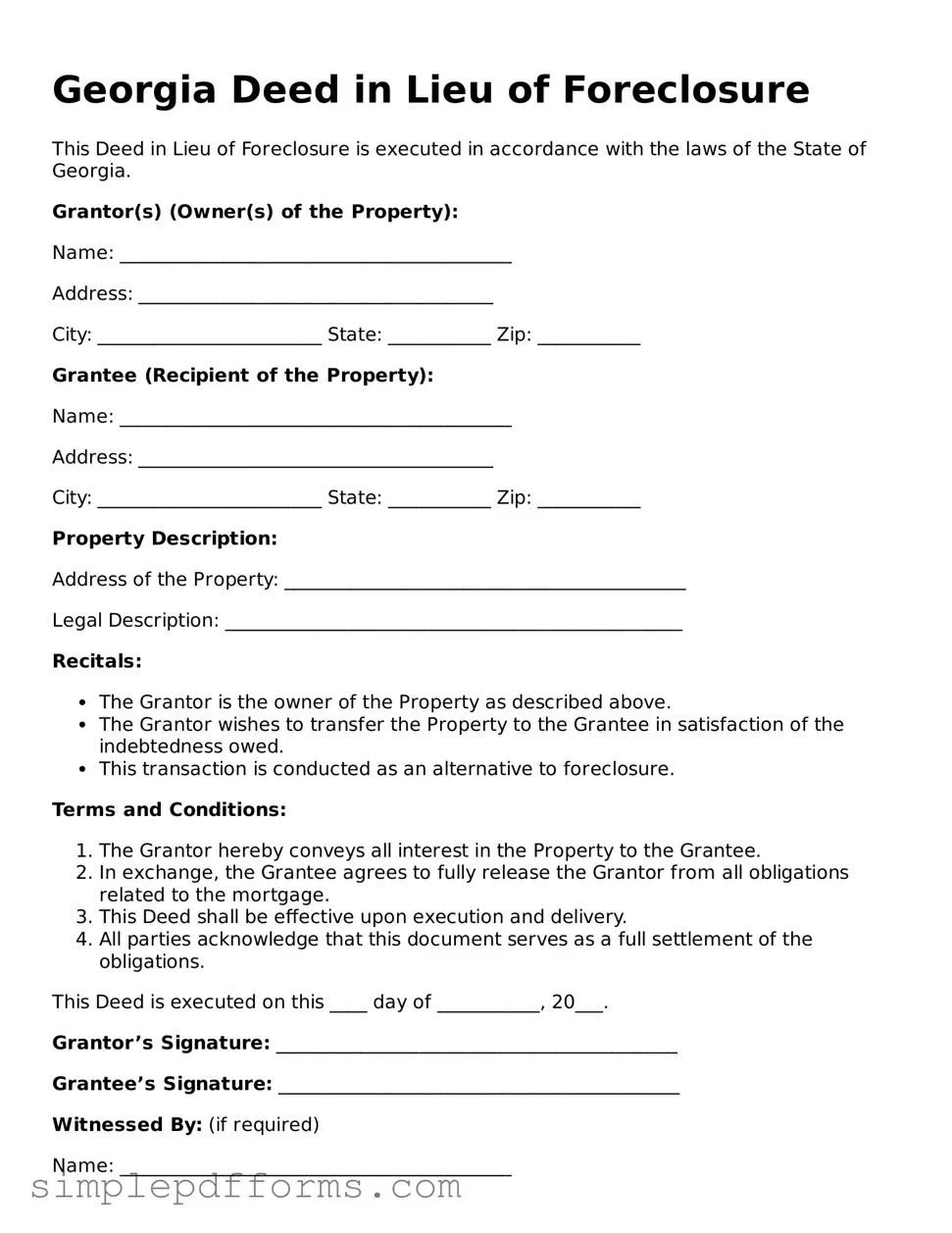Attorney-Verified Deed in Lieu of Foreclosure Document for Georgia State
A Georgia Deed in Lieu of Foreclosure is a legal document that allows a homeowner to transfer ownership of their property to the lender in exchange for the cancellation of their mortgage debt. This option can provide a more streamlined and less stressful alternative to the foreclosure process. Understanding the implications and requirements of this form is crucial for homeowners facing financial difficulties.
Open Deed in Lieu of Foreclosure Editor Now

Attorney-Verified Deed in Lieu of Foreclosure Document for Georgia State
Open Deed in Lieu of Foreclosure Editor Now

Open Deed in Lieu of Foreclosure Editor Now
or
Get Deed in Lieu of Foreclosure PDF Form
Your form is waiting for completion
Complete Deed in Lieu of Foreclosure online in minutes with ease.